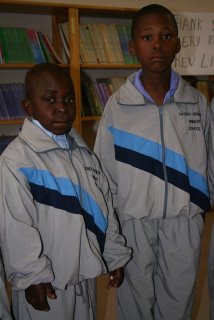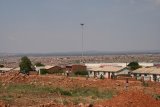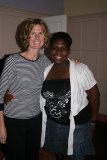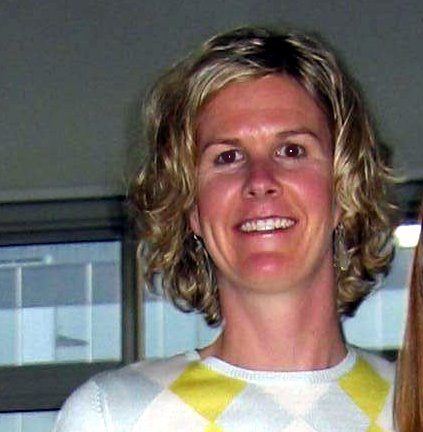Two schools and lots of uniforms
 On Monday, October 30th, we spent all day at two primary schools - Kid Mapunya and Patrick Mashego – where Linda’s organization, Project People Foundation, donated school uniforms. A child must have a uniform to attend public school in South Africa, so you can imagine the hundreds of thousands that do not attend because they cannot afford the uniforms. The uniform we handed out at Patrick Mashego costs R120 each (approx $16). (Pictured, the winter track suit style of uniform. I was really drawn to the little boy on the left. He looked like a little old man.)
On Monday, October 30th, we spent all day at two primary schools - Kid Mapunya and Patrick Mashego – where Linda’s organization, Project People Foundation, donated school uniforms. A child must have a uniform to attend public school in South Africa, so you can imagine the hundreds of thousands that do not attend because they cannot afford the uniforms. The uniform we handed out at Patrick Mashego costs R120 each (approx $16). (Pictured, the winter track suit style of uniform. I was really drawn to the little boy on the left. He looked like a little old man.) PPF works with women at Basadi Pele, a training center for women, teaching them how to sew, do domestic work, provide catering, and child care services. The women sew the uniforms that are then donated to the children. At the Mashego school, we were there to attend the uniform unveiling and presenting ceremony. The women from Basadi Pele attended the ceremony with us and we had lunch with them back at Basadi Pele afterwards.
Both schools we visited are only a few years old and, at first blush, look better than schools I have seen in Louisiana, L.A. and NYC. But, with a second look, you see a nice new exterior but not a single book in the library of the Mapunya school (I kid you not, the children sat in a library lined with shelves and there was not a single - not one - book); nice uniforms, but their shoes are tattered beyond belief; calmness and discipline, but then the principal points out child after child who has either just lost his mother to AIDs or is being raised in a "child-headed household" (i.e., by his 9-year old sister who no longer attends school because she has become the primary care giver for her 4 younger siblings. The schools and government know these exist, try to track them, but can't / don't do anything about them.); nice school, but then the children leave each afternoon to go back to their tin shacks. Despite all this, the uniform ceremony was uplifting. The choir sang, actually would hardly stop singing, with beautiful, strong voices and you could tell how much they liked entertaining us. After the children put on their uniforms, you could see the extreme pride in their faces.
But its not all gloom and doom here. So far we've managed to laugh a lot - I'm lucky to be hanging around three people who each have a great sense of humor. We ate at a place called Moyo's last night, in an area called Melrose that they like to compare to Soho (its actually more like the midtown area around Piedmont Park in Atlanta) and, ridiculously enough, allowed our wait staff to paint our faces like some sort of Zulu princesses/warriors. Tomorrow Linda and I head to Botswana and Zambia and Leigh-Ann and Greg go on to Cape Town, where we will all meet up again on Monday.







